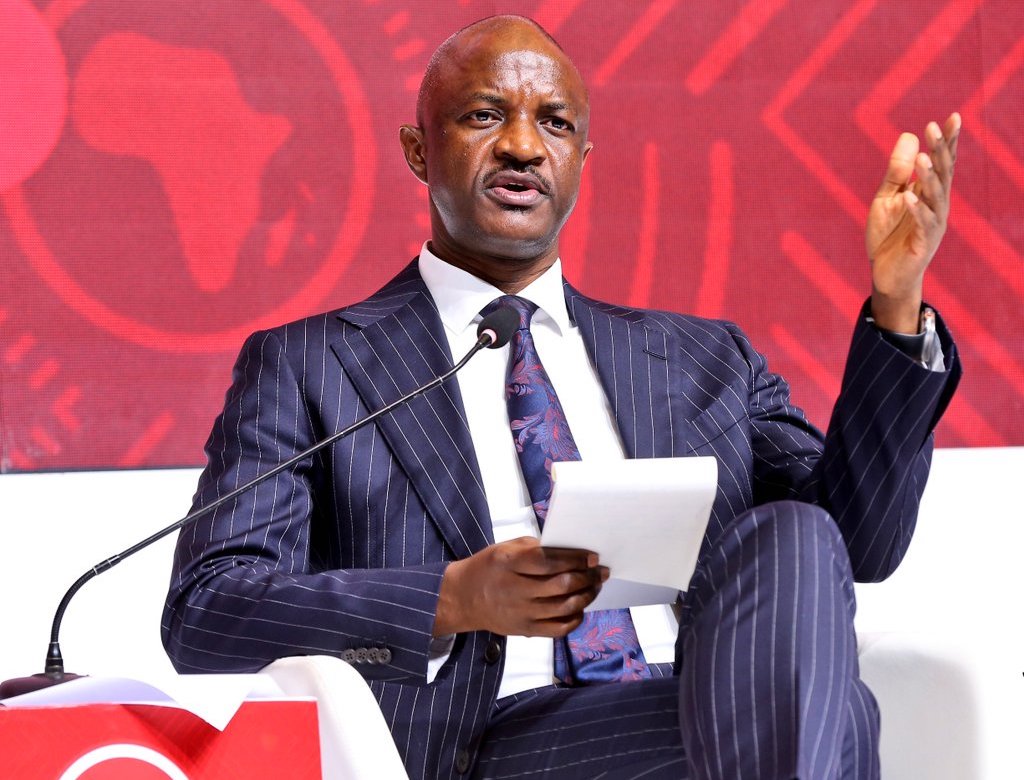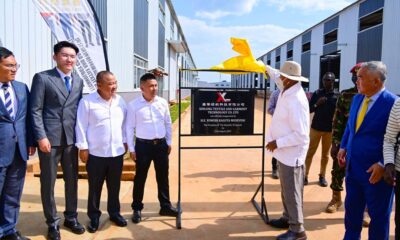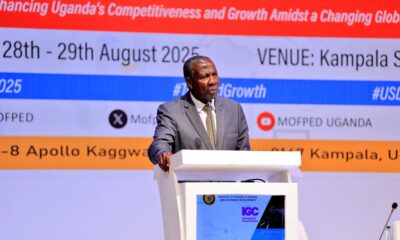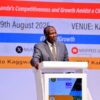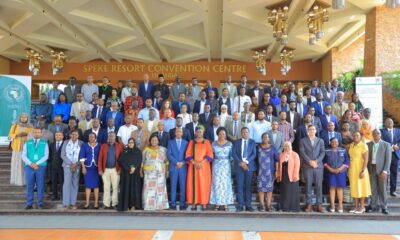Economy
Uganda’s $500 Billion Dream: PSST Ggoobi Unveils 5-Pillar Transformation Blueprint
“Uganda a nation blessed with abundant natural resources, yet grappling with the paradox of underdevelopment, is poised for a significant economic transformation.”
This was the message from the Permanent Secretary to the Treasury (PST), Dr. Ramathan Ggoobi, during his address at the Absa 2025 Post-Budget Dialogue held last week at the Kampala Serena Hotel.
He was outlining a strategic five-pillar approach to propel the country towards a $500 billion economy. Ggoobi passionately urged Ugandans to shed “impossibility faces” and embrace the nation’s immense potential.
He painted a vivid picture of Uganda’s unique predicament, highlighting how it is very rich, but paradoxically hindered. “The problem we have with Uganda is that we are so heavily endowed, and it’s a big problem,” he stated, adding a thought-provoking observation: “It’s only actually Uganda, I think, which is the only country in the world where you can survive without money; and that’s a big, big problem we are having.”
Ggoobi argued that this abundance has fostered a mindset that needs urgent recalibration.
The PST’s vision for Uganda’s economic ascent is encapsulated in a “very beautiful dream” of a $500 billion trajectory, achievable by implementing “only five things we need to change.”
He dismissed the notion of relying solely on external solutions, emphasizing internal discipline and strategic investments. “Forget about these ATMs and so on,” Ggoobi asserted, clarifying that the commonly used acronym “ATMs” (referring to Agriculture, Tourism, Minerals, and ICT) was “deliberately crafted to work on our minds that we, as a country, are to invest in certain things, for us to be able, in future, to draw bigger GDP.”
He stressed that; “You can’t draw money where you have not deposited. You have to first save yourself to find money in an ATM.”
The five critical pillars he detailed are:
Clean Up: Enforcing the Rules of the Game
Ggoobi stressed the paramount importance of discipline, starting from individual households and extending to societal levels. “We must clean up by enforcing rules of the game in Uganda, by enforcing the laws, the regulations, the things that we set out to do, and we do them,” he emphasized. He pointed the challenges of cleaning up as: in markets, on roads and in banks. This, he added, is where there are manifestations of lack of discipline, urging a collective introspection into societal behaviour.
Team Up: Fostering Consensus and Collaboration
Secondly, the PST highlighted the need for greater national consensus and teamwork. “We must build that discipline of consensus, discipline of getting teams to work, of people knowing that you are nothing without others,” he stated. He decried the tendency for individuals to prioritize themselves over institutions, asserting, “You can die. Uganda will stay. An institution will stay.” This pillar, he urged, calls for a unified approach to national priorities, ensuring that agreed-upon goals are pursued collectively without diversion.
Skill Up: Investing in Employable Human Capital
He addressed the third pillar as that of the critical issue of unemployment. Ggoobi pointed out that many young Ugandans are not just unemployed, but “unemployable”. He urged a shift from supply-driven skilling to demand-driven approaches, with the private sector playing a crucial role. “We need to ensure that we scale up, what we invest in those critical areas which are demanded by the market,” he said, advocating for skills development that aligns with industry needs for digitalization, technology and innovation.
Green Up: Embracing Climate-Smart Development
Acknowledging the global shift towards sustainable development, is what Ggoobi emphasized as the fourth pillar necessary for “Clean Development.” He stated that; “Gone are the days when development is going to come from dirty places.” This pillar calls for preserving the environment while pursuing growth and ensuring that investments are ‘climate-smart’. He cited examples like climate-smart agriculture, responsible industrialization and resilient infrastructure, as key to this transition.
One Up (Regionally): Leveraging Regional Value Chains
Ggoobi underscored the crucial role of regional integration, as the fifth pillar, quoting President Yoweri Museveni’s analogy that, “We are nothing as Uganda without Africa.” He highlighted the immense economic potential within East Africa and beyond. “Sometimes, some people ask us, ‘Who is in Government? Why are you allowing these goods to come here? Why don’t you protect us? We also ask you, where will you sell the goods?’
Ggoobi revealed annual impressive figures of trade with neighbouring countries: Democratic Republic of Congo; over $800, annually. South Sudan; nearly $400 million, Rwanda; Over $250 million; and, Kenya; approximately $600 million. These figures, he argued, demonstrate the vital role of regional markets. He envisioned extending this regional collaboration across Africa, aiming to secure an average of $200 million from each partner. “What do they need? What we have and what we can work on with them,” he concluded. He emphasized a collaborative approach to regional economic growth.
PSST Ggoobi’s clarion call address at the Absa dialogue was to foster a collective mindset shift and enhance strategic action. By all that, he revealed that Uganda aims to unlock its vast potential and achieve the ambitious $500 billion economic dream.
A number of participants wondered whether the coming years would reveal whether this five-pillar blueprint would indeed transform the nation’s fortunes. This underscored the mindset Ggoobi was addressing.
Comments



